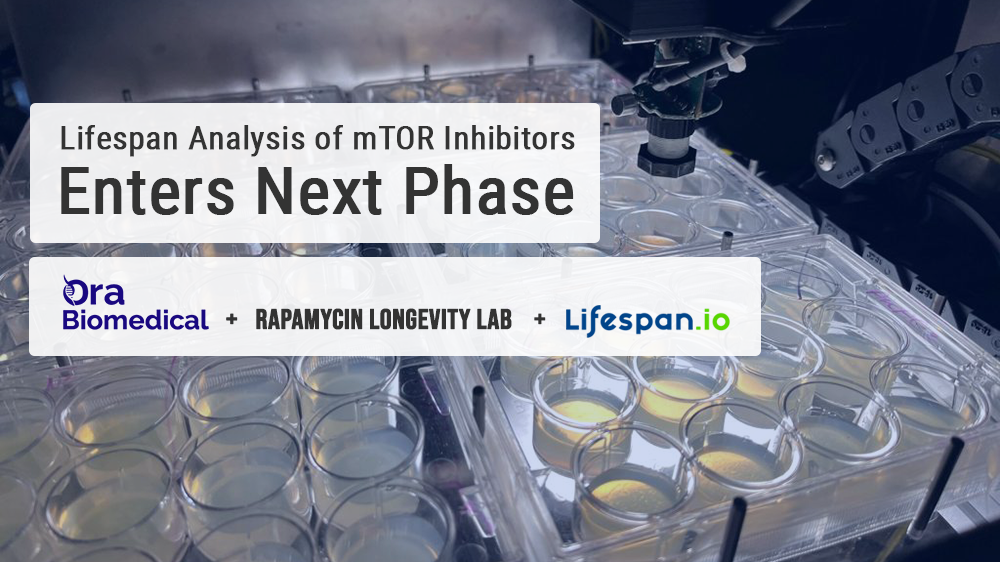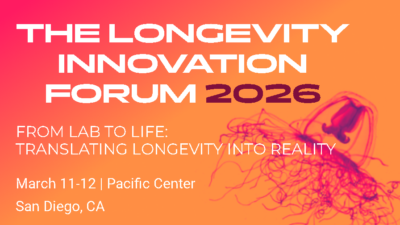The mTOR Inhibitors Lifespan Project Enters Next Phase
- First subproject fully funded to test 301 mTOR inhibitors for extended lifespan

Ora Biomedical, in partnership with Rapamycin Longevity Lab, announces the successful funding of the first subproject under its ambitious initiative to conduct a rapid lifespan analysis of 601 mTOR inhibitors in roundworms.
With $50,000 secured, Ora Biomedical will now commence the next phase of the first subproject. This will be a high-throughput screening of 301 mTOR inhibitors using its cutting-edge WormBot-AI technology. This milestone marks an important step toward identifying next-generation compounds that could be more effective than rapamycin, which is currently seen as the golden standard because of its good longevity effects in multiple species.
Mitchell Lee, CEO of Ora Biomedical, emphasized the importance of this research by stating: “The potential of targeting aging to broadly improve healthy lifespan is clear from decades of studies with compounds like rapamycin. However, even for well-validated molecular targets like mTOR, we still don’t know the best interventions. We at Ora Biomedical are proud to partner with Rapamycin Longevity Lab to advance our understanding around targeting mTOR and related kinases for maximizing healthy lifespan. None of this work is possible without support from visionary donors and organizations like the Lifespan Research Institute, the nonprofit behind Lifespan.io, with whom we have partnered to create pathways for donations to advance longevity science. To all those involved, thank you again, and we are excited to get to work!”
“At Lifespan Research Institute, we believe that rigorous, scalable science is essential to advancing interventions that can combat age-related decline and extend healthspan. We are proud to help catalyze Ora Biomedical’s high-throughput screening of mTOR inhibitors, and deeply appreciate the donors making it possible,” said Keith Comito, Board President of Lifespan Research Institute.
Fundraising for the second subproject
While the first subproject moves forward, fundraising continues for the remaining 300 inhibitors, which requires an additional $40,000. “We’re thrilled to begin screening, but completing the full dataset is crucial. One of the big problems for really advancing the longevity field is that we do not have a large and publicly available dataset of essential basic longevity data. We as a field need to get basic data in place so that we can start to take things to the next level.” said Krister Kauppi, the project leader at Rapamycin Longevity Lab. “We invite organizations and individuals passionate about longevity to join us in this effort to enable research to progress from simple and basic studies to much more advanced and impactful longevity research.”
Those interested in learning more or contributing can reach out to Krister Kauppi at Rapamycin Longevity Lab via email: krister@masteronething.com
Rapamycin Longevity Lab is a research organization focused on advancing the use of mTOR inhibitors as the core component in longevity combinational therapies. Through partnerships with companies like Ora Biomedical, Rapamycin Longevity Lab efficiently screens and tests new combinational therapies, with a long-term goal of translating this research into human clinical trials.
Ora Biomedical, Inc. is a longevity biotechnology company developing therapeutics that target the biological mechanisms of aging to improve health, resilience, and performance. Using proprietary AI-driven robotic screening platforms, Ora identifies and advances small molecule interventions that extend lifespan, fight age-associated disease, and protect against stress-induced physiological decline. The company’s lead programs focus on dual-use applications in defense, aerospace, and preventive health. Ora also leads the Million Molecule Challenge—a groundbreaking citizen science initiative to create the world’s largest open-access longevity interventions database through broad public participation.







